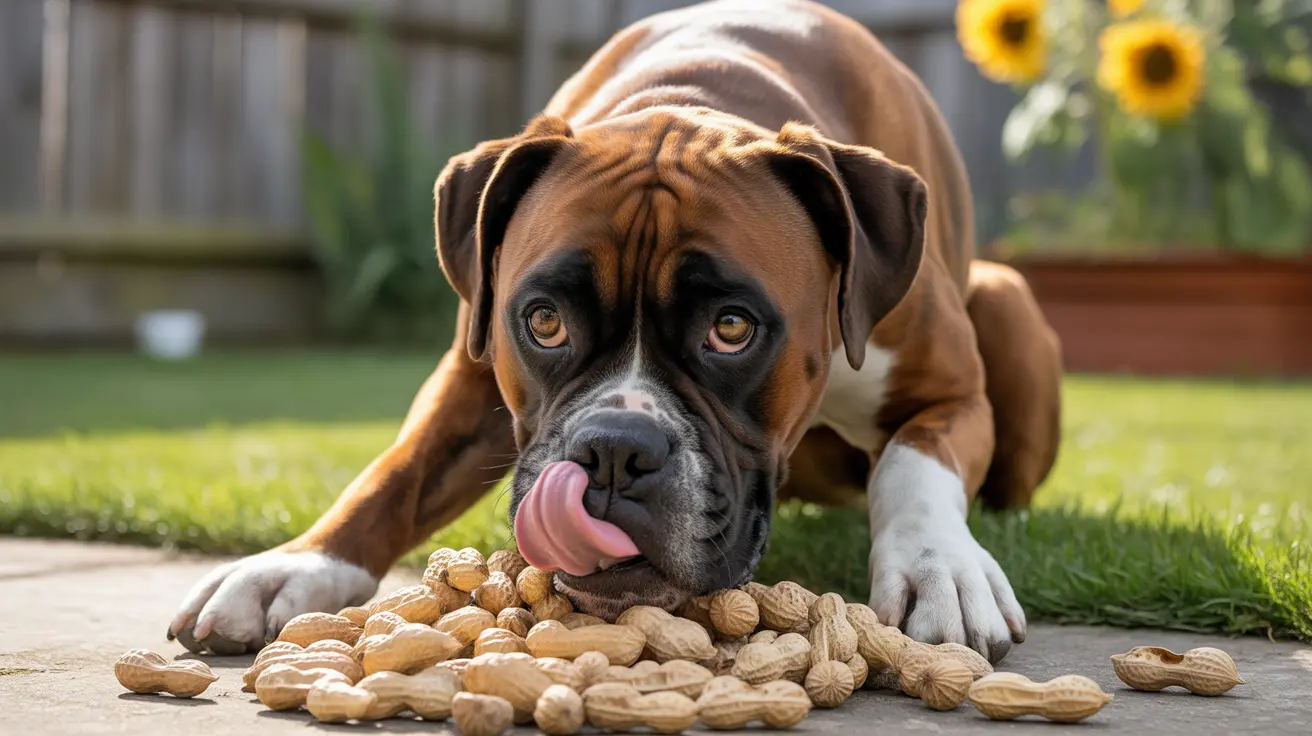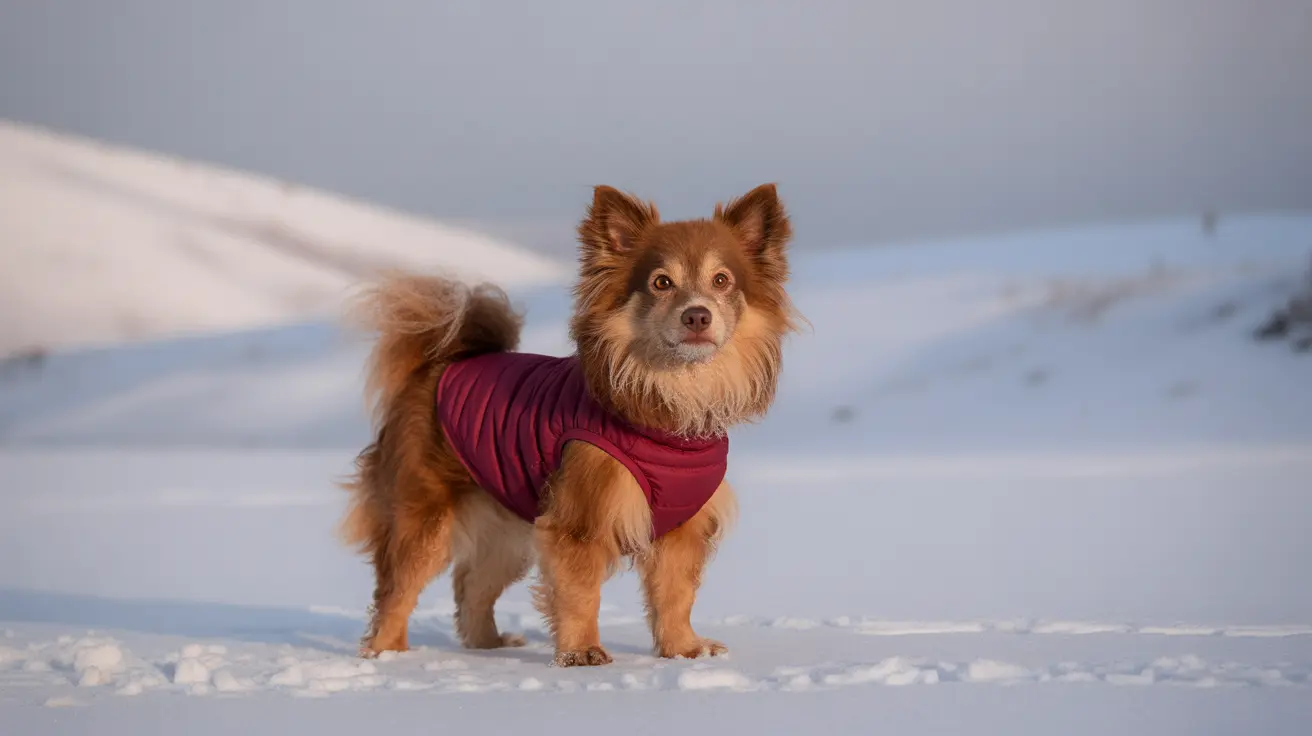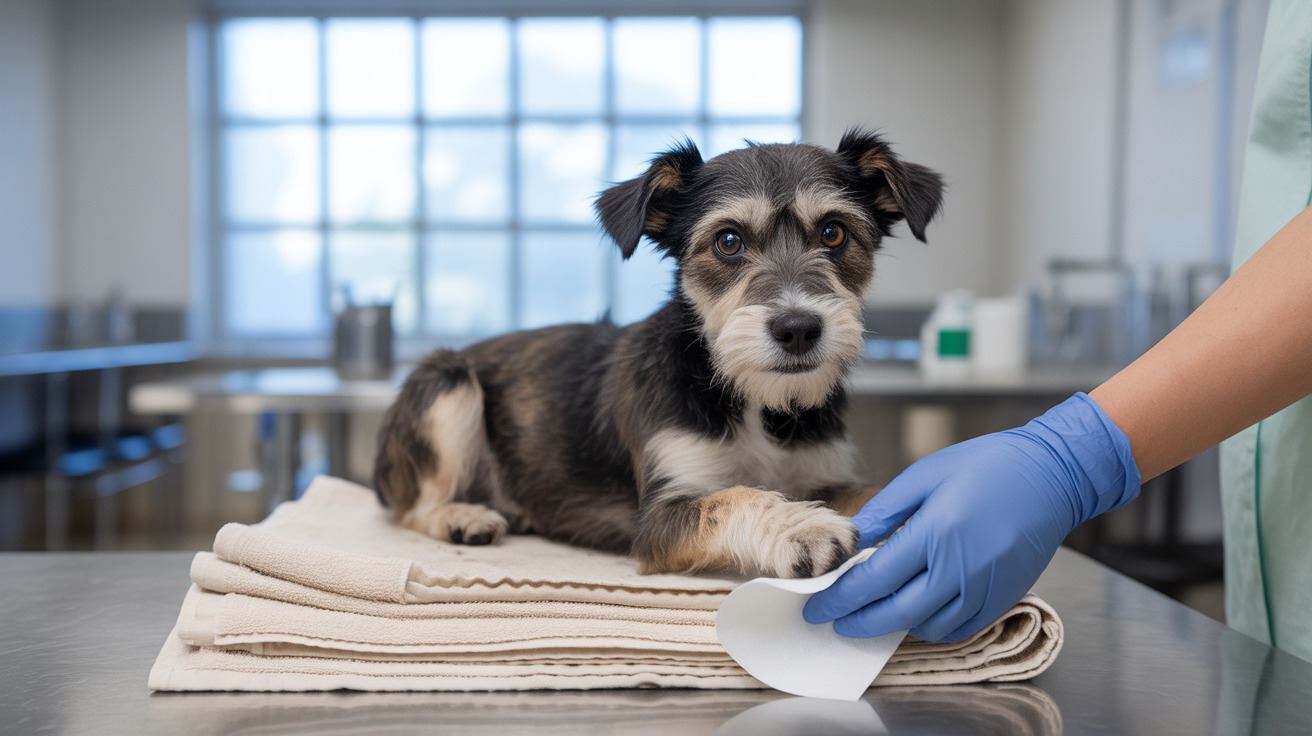The Dangers of Peanut Shells for Dogs
While peanut shells aren't toxic to dogs, they pose several serious health risks that make them unsafe for consumption:
Choking Hazards
The hard, brittle nature of peanut shells makes them a significant choking risk, especially for smaller dogs. Fragments can easily become lodged in your dog's throat, requiring immediate emergency intervention.
Intestinal Blockages
Peanut shells are indigestible and can accumulate in your dog's digestive tract, potentially causing dangerous blockages. These obstructions may require surgical removal and can be life-threatening if not addressed promptly.
Digestive System Damage
The rough, sharp edges of peanut shells can scratch or irritate your dog's digestive tract, from mouth to intestines. This can lead to inflammation, bleeding, and severe discomfort.
What to Do If Your Dog Eats Peanut Shells
If you catch your dog eating peanut shells, take these immediate steps:
- Remove any remaining shells from your dog's reach
- Monitor for signs of distress or blockage
- Contact your veterinarian if you notice concerning symptoms
- Watch for changes in appetite, behavior, or bathroom habits
Warning Signs to Watch For
Be alert for these symptoms that may indicate complications:
- Vomiting or retching
- Lethargy or depression
- Loss of appetite
- Abdominal pain or swelling
- Difficulty defecating
- Unusual drooling or pawing at the mouth
Safe Peanut Alternatives for Dogs
Instead of peanut shells, consider these safer options:
Plain, Unsalted Peanuts
Remove shells completely and offer plain, unsalted peanuts as an occasional treat. Always monitor portion size to prevent weight gain.
Dog-Safe Peanut Butter
Choose xylitol-free peanut butter specially formulated for dogs, and use it sparingly as a high-value training reward or treat.
Prevention and Safety Tips
Follow these guidelines to keep your dog safe:
- Store peanuts in secure containers out of your dog's reach
- Clean up shells immediately after snacking
- Supervise dogs during outdoor walks where discarded shells might be present
- Choose dog-specific treats instead of human snacks
- Educate family members about the dangers of sharing peanut shells with pets
Frequently Asked Questions
Are peanut shells safe for dogs to eat, or do they pose health risks?
No, peanut shells are not safe for dogs to eat. While not toxic, they pose serious risks including choking, intestinal blockages, and digestive system damage.
What are the signs that my dog might be choking or have a blockage from eating peanut shells?
Watch for vomiting, difficulty breathing, excessive drooling, lethargy, loss of appetite, abdominal pain, and changes in bowel movements. These symptoms require immediate veterinary attention.
How should I care for my dog if they accidentally eat peanut shells?
Monitor your dog closely for signs of distress, contact your veterinarian for guidance, and watch for symptoms of blockage or digestive issues. Increase water intake and follow your vet's recommendations.
Can dogs safely eat peanuts without the shell, and what precautions should I take?
Yes, dogs can safely eat plain, unsalted peanuts in moderation. Remove all shells, avoid flavored or salted varieties, and limit portions to prevent weight gain.
Why are salted or flavored peanuts and peanut butter sometimes dangerous for dogs?
These products often contain harmful ingredients like excess salt, artificial sweeteners (especially xylitol, which is toxic to dogs), or other additives that can cause health problems in dogs.
Remember, while peanut shells might seem harmless, they can cause serious health complications for your dog. Always err on the side of caution and keep peanut shells away from your furry friend. If you want to treat your dog to peanut-based snacks, stick to safe, dog-appropriate options and always consult with your veterinarian about proper portions and precautions.






